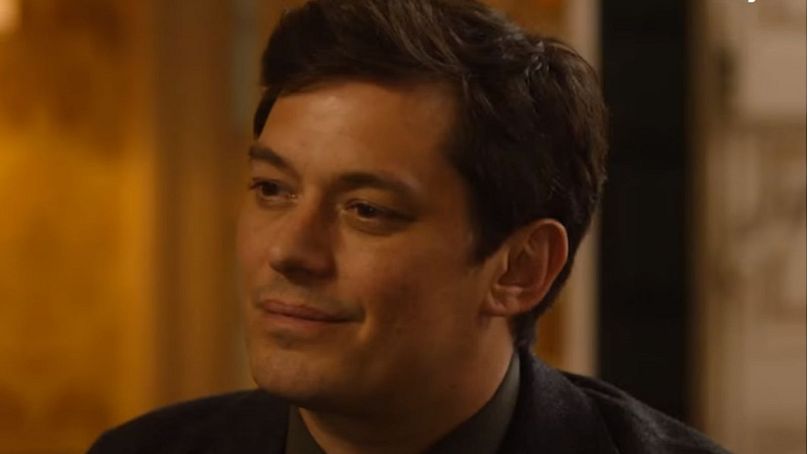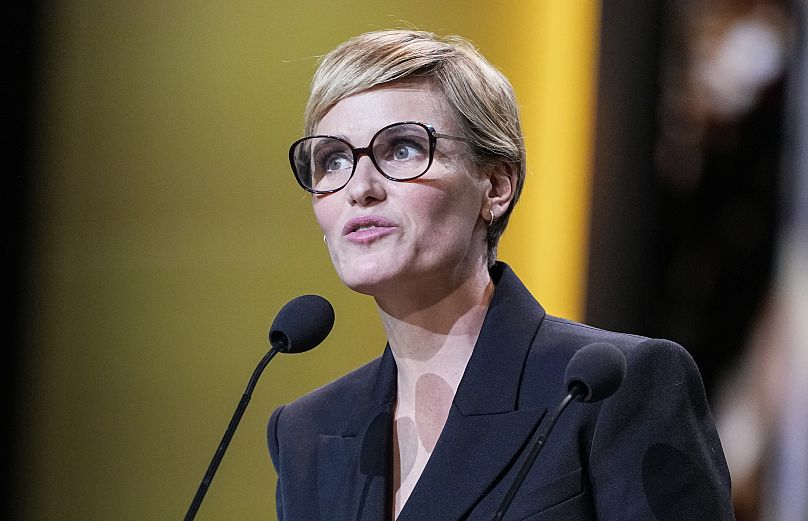Is France facing a watershed moment for all those who have been silenced in the entertainment industry? The #MeTooGarçons campaign may be a small step in that direction, but it has certainly given male victims of abuse a voice.
Launched by American activist Tarana Burke in 2006, the #MeToo hashtag was popularised by American actress Alyssa Milano on social networks, and contributed to the downfall of Hollywood producer Harvey Weinstein. It shook Hollywood to its core and sparked worldwide conversations about the sexism, sexual harassment and abuse suffered by women across the planet, no matter their industries.
While the movement gained momentum in countries like the UK and Sweden, others like Italy and France have been lagging behind – even if some cases have started to shake things up, like the Til Schweiger accusations in Germany or the Carlos Vermut condemnation in Spain.
The flurry of accusations and complaints against Gérard Depardieu in France have divided the country’s insular entertainment industry – but there seems to be some forward progress, as evidenced by the actions of French actress Judith Godrèche, who recently urged politicians to establish a commission to investigate sex crimes and sexism in French cinema.
And now, ever since French actor Aurélien Wiik launched the hashtag #MeTooGarçons (#MeTooBoys) last month, France has seen a new wave of the #MeToo movement take off.
“The boys of the cinema are waking up.”
Wiik, 43, best known for his role in the Netflix series Jusqu'ici tout va bien, revealed that he had been a victim of sexual violence by his agent and members of his entourage from the age of 11 to 15.
The actor explained that "until I was 25, I was offered roles in exchange for favours. They often tried to drug me.” He went on to say that being abused “doesn't make you any less of a man", before concluding with a message to his abusers: "Fear not, your turn will come. You know who you are. The boys of the cinema are waking up.”
The actor said he was inspired by the work of actress Judith Godrèche, who wrote in Le Monde about her abusive relationship with director Benoît Jacquot, and the abuse she suffered at the hands of filmmaker Jacques Doillon.
It seems that Godrèche's speech at the 49th Césars ceremony a week ago was also something of a landmark moment. Having spearheaded the French #MeToo movement, the actress delivered a plea against sexual violence against women in the film industry.
For his part, Wiik encouraged men, actors and non-actors alike, to speak out. In a matter of days, a new movement liberating the male voice was born, with hundreds of accounts of sexual assault and rape published online.
"I was sexually molested by a cousin I saw every summer.”
"From the time I was 9 until I was 15, I was abused by my stepfather."
"The family doctor molested me when I was 16.”
"The first time, I was too young to understand that what my nanny was doing wasn't normal. The first time, I was seven. It lasted a year. He was protected, and everyone lied for him.”
Courage is being found when figures in the spotlight speak out.
Figures like French choreographer and dancer Yanis Marshall, who recently denounced the actions of TV show PopStar choreographer Bruno Vandelli. He shared in French outlet Le Parisien that Vandelli had "pressed his hard cock behind me during the lessons he gave me and asked me to kiss his cock before saying hello".
The #MeTooGarçons campaign has also inspired public figures, such as Andy Kerbrat, LFI (La France Insoumise) MP, who has also spoken out.
"I was abused from the age of three to four by a predator, who has since died so there is no possibility of justice," he wrote on X, followed by the hashtag #Metoogarçons. "We don't heal, but we repair ourselves. Together."
In an interview with BFMTV, Kerbrat said: "If it hadn't been for Aurélien Wiik's first testimony, I don't know if I would have been able to speak out.”
A male reckoning for the French cinema industry?
Speaking to Le Parisien, Wiik said that he was waiting for more testimonials before going public again. Considering the fact that hundreds of men are speaking out on social media, breaking taboos, the opportunity is now at hand, and the French entertainment industry is once again in the firing line. Specifically, the world of cinema.
There have been recent complaints of sexual harassment and assault by actor Francis Renaud against famed screenwriter and film director André Téchiné (My Favourite Season, Wild Reeds).
"Never suffer. Never forget. Never be silent", wrote Renaud in a post on X.
The 56-year-old actor, who has appeared in several Olivier Marchal films, posted a photo of a complaint lodged against Téchiné and casting director Gérard Moulévrier.
Three offences are mentioned against the filmmakers: "sexual harassment", "death threats" and "sexual assault".
In response to the accusations, André Téchiné referred to an "awkward" approach during a lunch with the actor in 1990. "I am obviously sorry that (Francis Renaud) was embarrassed by my sentimental, clumsy verbal approach at that lunch," said the 80-year-old director through his lawyer. "I was of course wrong, at the time, not to have been able to perceive that our relationship was not on an equal footing in his eyes because of my status as a film director. On the other hand, I can only express my incomprehension today at the filing of this criminal complaint", continued the filmmaker.
For his part, casting Moulévrier denied the accusations against him.
This hasn’t stopped Renaud from actively posting on his social media accounts, and continuing to denounce sexual violence in the film industry.
"It's time to break the omerta that has disgraced cinema for years."
#MeTooGarçons has also inspired casting director Stéphane Gaillard, who has launched an e-mail – metooacteur@gmail.com - for male victims of sexual abuse.
"The boys in the film industry are speaking out. If you've been a victim, you can tell your story in total anonymity", he wrote on Instagram.
A watershed moment on the horizon?
Men had already come forward within the #MeToo campaign to testify about sexual assaults, like Anthony Rapp and Brendan Fraser. These testimonies remain less frequent compared to female ones, in part due to still prevalent taboos surrounding virility and shame linked with societal stereotypes. Still, progress is being made – both in the film industry and outside of that dysfunctional bubble.
There’s also the fact women are still more likely to be exposed to such violence. According to a 2021 study, 17% of women have been sexually abused by a "non-partner", compared with 3% of men.
The #MeTooGarçons campaign reveals that men – in all industries – also need to speak out, and in doing so, can help the #MeToo in general to pick up further momentum in France. Their voices can inspire all genders to share their own experiences of harassment, sexual assault and sexual discrimination, to hopefully lead to the same upheaval as in the US.
And while sexual violence has not diminished despite people speaking out, #MeTooGarçons is a further step towards breaking the silence around sexual violence, gendered taboos, and denouncing aggressors.
Celebrities have their part to play in showing that no gender is spared from abuse.
“I won’t let go... I’m waiting to see change,” said Judith Godrèche in a post-Césars interview with Deadline.
Change is happening, and the watershed moment for all those who have been silenced in France feels like it just got a little bit closer.













